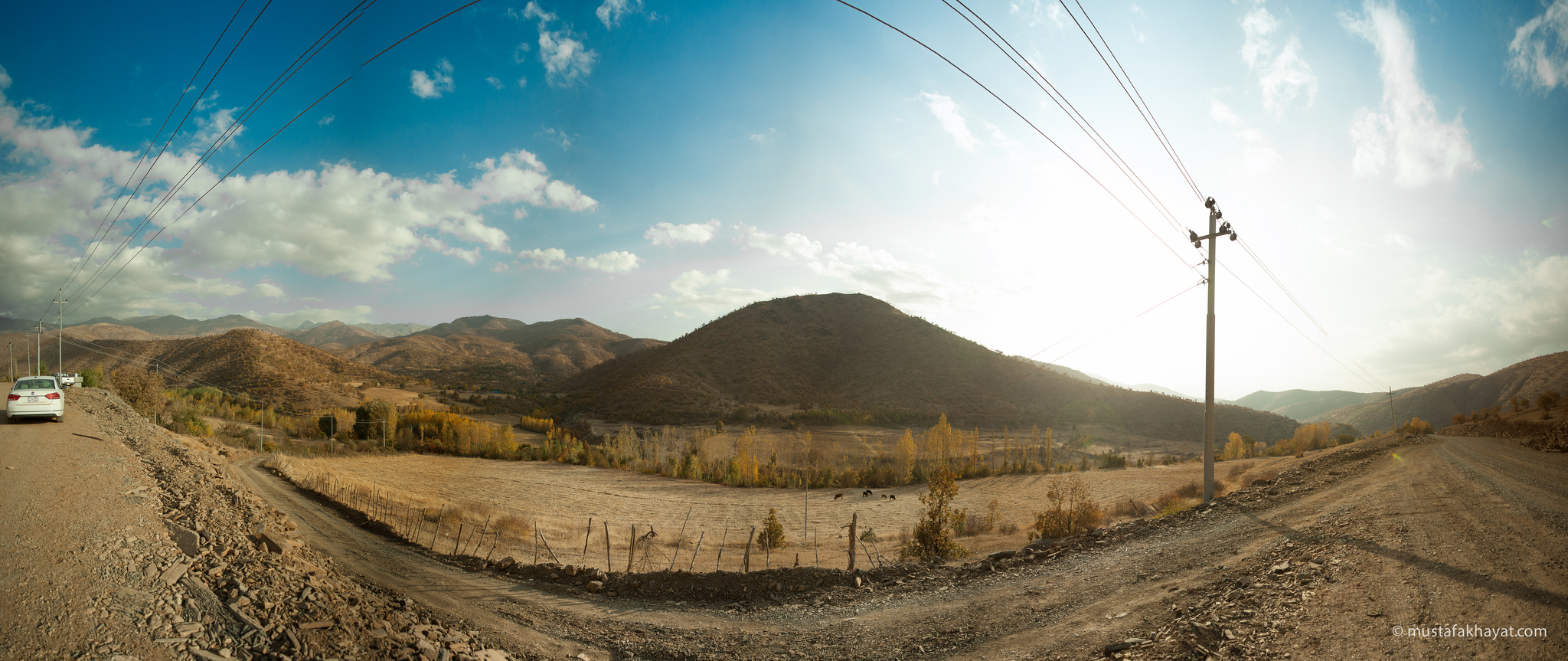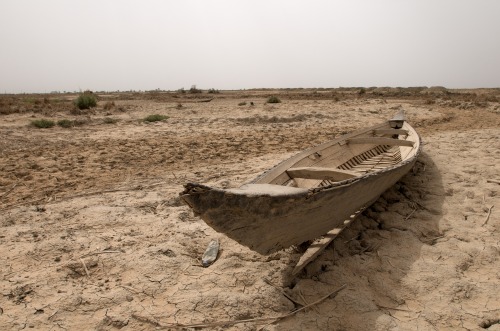 A new green zone is sprouting in Iraq, but it’s not the kind you think. It’s a grassroots one pushed by a new culture of conservationists whose currency is reeds.
A new green zone is sprouting in Iraq, but it’s not the kind you think. It’s a grassroots one pushed by a new culture of conservationists whose currency is reeds.
The recent environmental history of Iraq is a tale of two men. Saddam Hussein had a horrific impact on the ecology of the country, principally by ordering the draining of the Mesopotamian Marshes in the 1990s in order to collectively punish communities where resistance to his regime persisted. The incredible cultural and biological loss of the marshes (which once covered 20,000 square km in southern Iraq, twice the size of the Everglades, making it the largest wetland ecosystem in the Middle East and Western Eurasia) inspired Azzam Alwash in 2003 to come back to Iraq from the U.S. to see what remained of the marshes he grew up visiting as a child.
The marshes provide habitat for a number of globally endangered or threatened species and support a diversity of fish and amphibians year-round, situated as they are between the Tigris and Euphrates Rivers. They are home to 28 of Iraq’s Important Bird Areas thanks to the other geographical factor of being in the midst of a migratory flyway for birds headed from Africa to Europe and back. Untold legions of birds have stopped here to rest and refuel in safety for millennia, feeding on the myriad small creatures found in the mudflats and reed-beds.
The area’s richness is what supported the Sumerian culture (and the ancient city of Ur plus the Biblical site of Eden, allegedly) that gave rise to agriculture and written language, as well as the rich Marsh Arab culture, which as recently as the 1990s numbered around 300,000 and lived an independent, sustainable, and indigenous lifestyle. This independence is what ran these people into trouble with Saddam Hussein, who in the 1990s ordered a herculean feat of engineering that channelized and drained the marshes in order to control dissent and root out anti-government rebels there, reducing the reeds to just 10 percent of their previous glory.
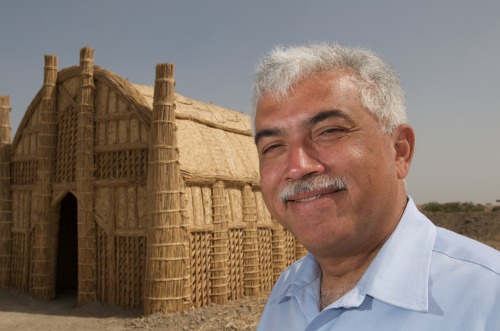
The result was a dustbowl where life once teemed. Alwash, who had visited the marshes as a child with his father, an irrigation engineer for Hussein’s government until the family fled to the U.S. to escape the Ba’athists, dreamed of a renewed marsh system again capable of supporting a multitude of life and indigenous people.
So after the fall of Hussein, Alwash, by now a successful engineer in California, approached a D.C.-based NGO about initiating a project focused on restoration of the marshes. The first outcome was a study [PDF] which showed immediate benefits possible from re-flooding the marshes, and the ultimate result was Nature Iraq (NI). The new NGO partnered with international NGOs, agencies attached to European countries, and the new Iraqi government to engineer the re-flooding and revival of the marshes — in 2010 they sprawled across their greatest extent in recent history! More than that, NI is creating a new culture of conservation in the country by training a dedicated corps of biologists who help document the massive return of species and by popularizing a vision that Iraq’s biodiversity is a precious resource.
One of the key partnerships Nature Iraq has developed is with the international NGOs Wetlands International and also BirdLife International (BI), with whom they published a field guide to the birds of Iraq in Arabic in 2007 (the first resource of its kind). Richard Porter of BI has been impressed with their dedication and effectiveness, saying recently of NI that he has “been involved in wildlife conservation in the Middle East for over 40 years and I can honestly say that Nature Iraq is the most active organization I have worked with, and its staff and supporters the most capable and dedicated.”
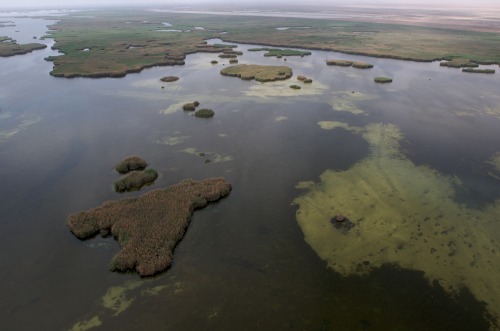 NI has an increasingly important role in advocating for the overall biodiversity of Iraq now, too. Under direction from Alwash, NI is developing Biodiversity Action Plans for new sites in mountainous Kurdistan far to the north, as well as surveying the migratory stop-over sites of the critically endangered Sociable Lapwing and the globally threatened Houbara Bustard, Egyptian Vulture, Marbled Duck and Lesser White-fronted Goose. On behalf of these species NI is also undertaking conservation education efforts by giving talks to groups of school children and hunters in the communities in which they work, north and south, and by distributing educational information widely.
NI has an increasingly important role in advocating for the overall biodiversity of Iraq now, too. Under direction from Alwash, NI is developing Biodiversity Action Plans for new sites in mountainous Kurdistan far to the north, as well as surveying the migratory stop-over sites of the critically endangered Sociable Lapwing and the globally threatened Houbara Bustard, Egyptian Vulture, Marbled Duck and Lesser White-fronted Goose. On behalf of these species NI is also undertaking conservation education efforts by giving talks to groups of school children and hunters in the communities in which they work, north and south, and by distributing educational information widely.
Alwash has been called a visionary for managing so much effort and success, but he is measured when asked. Like he said last year in a great “Braving Iraq” episode of Nature on PBS, “In many ways the restoration of the marshes mirrors the restoration of Iraq, there’s two steps forward, one-step back. But you know what? Directionally we’re on the right track. The future’s good, all you need is to have the will and persist, and if we can restore (the marshes), Iraq can be restored too.”
Azzam’s long-term goal is to establish Iraq’s first national park, right there in the marshes, an attraction capable of educating Iraqis, building pride in the area and its conservation legacy, and bringing tourists from all over the world to see the rare birdlife and the amazing ruins of the Mesopotamian cities. Tourism dollars could really help the region, and stave off the urge to drill the area for oil instead of setting it aside for conservation. It is a lofty goal but with a workable restoration plan already succeeding and with strong support from the government, it is a real possibility.
Southern Iraq is a difficult working environment and can be dangerous, as insurgent groups operate in areas that Nature Iraq works in. Alwash’s main hardship is being away from his family and giving up his career and engineering business in the States, though. He routinely misses his daughters’ birthdays, recitals, graduations, and other important milestones in life.
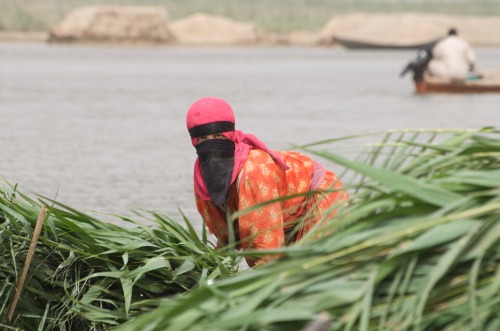
In addition to Nature Iraq’s key NGO allies, Alwash has made important alliances with UNEP and UNESCO, but perhaps most importantly with the nascent Iraqi government. NI counts the Ministry of the Environment as one of its key partners, and the culmination of this happens this week (May 14/15, 2011) when at the invitation of UNEP they co-host the official observance of World Migratory Bird Day with events in the cities of Irbil, Suli, Baghdad, and Al Kaba’ish (more information here on the events that are planned).
As busy as he is with all this, Alwash took a minute to respond to my recent question of what Americans can do to help. “Encourage the US government and military to support environmental activities, be it sponsoring projects for the clean up of the environment, the formation of protected areas, or constructing buildings associated with such protected areas.”
Are you listening, Uncle Sam?

